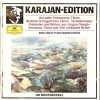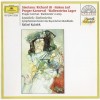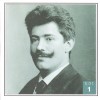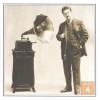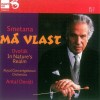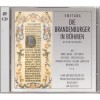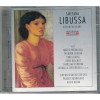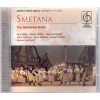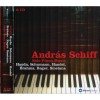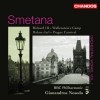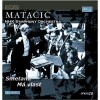Composers
Bedřich Smetana was a famous Czech composer and was regarded as the Father of Czech music; as he was the first man in the musical world, who pioneered the development of a musical style, according to the aspirations of his native people for the independence of his mother land. He also wrote Libuse for reasons beyond patriotism.
After coining the term musical style, Smetana became internationally popular for his opera and symphonic cycle namely The Bartered Bride, and Má vlast, respectively. “Má vlast” was a legend, Bedrich did his best to portray the history of his native land.
Bedrich Smetana was born on 2nd of March, 1824 in Litomysl or Leitomischl, in Czechoslovakia. He was a God gifted child prodigy who started playing a string quartet at a very young age, when he was just five years old. He gave his first public performance at the age of six and debuted as a pianist the same year. Smetana’s father, who was also a great music lover and was a brewer, gave him initial musical training, then he got admission in local school for getting conventional training. Bedrich got basic musical education from “Josef Proksch” and knowledge of music literature from Lisz.
Bedrich received a great blow when he was in Prague in 1843.Initially, nobody was interested to listen his playing, but he stepped up his compositional efforts and finally became very popular due to his first nationalistic music, which he wrote in 1848 in Prague.
After Prague he went to Sweden and became a teacher and choirmaster in Gothenburg. Here he began to write large-scale orchestral works. He got married with Katerina Kolerova, who was also his pupil, but this marriage was fraught with tragedy as Katerina developed tuberculosis and died in 1855.
In the early 1860s, Bedrich return to Prague, due to the liberal political climate of Bohemia, where he devoted himself for the musical life of the city, primarily as a champion of the new genre of Czech opera. Later on in 1866, his two operas namely The Brandenburgers in Bohemia and The Bartered Bride became very famous, which again increased Bedrich popularity and he became the theatre's principal conductor. But here he indulged in a controversy with the progressive ideas of Franz Liszt and Richard Wagner to the development of a distinctively Czech opera style and this opposition interfered with Smetana creative work, badly. Thus, Bedrich health was broken down and he finally resigned from the theatre in 1874.
Now, Bedrich began a period of sustained composition that continued for almost the rest of his life. His contributions to Czech music were really honorable. Bedrich died on 12th of March, 1884 but his reputation as the founding father of Czech music has endured in his native country, where his advocates had raised his status above that of his contemporaries and successors.
Recently Added
| Country: | Czech Republic |
| Period: | Classique |
Biography
Bedřich Smetana was a famous Czech composer and was regarded as the Father of Czech music; as he was the first man in the musical world, who pioneered the development of a musical style, according to the aspirations of his native people for the independence of his mother land. He also wrote Libuse for reasons beyond patriotism.
After coining the term musical style, Smetana became internationally popular for his opera and symphonic cycle namely The Bartered Bride, and Má vlast, respectively. “Má vlast” was a legend, Bedrich did his best to portray the history of his native land.
Bedrich Smetana was born on 2nd of March, 1824 in Litomysl or Leitomischl, in Czechoslovakia. He was a God gifted child prodigy who started playing a string quartet at a very young age, when he was just five years old. He gave his first public performance at the age of six and debuted as a pianist the same year. Smetana’s father, who was also a great music lover and was a brewer, gave him initial musical training, then he got admission in local school for getting conventional training. Bedrich got basic musical education from “Josef Proksch” and knowledge of music literature from Lisz.
Bedrich received a great blow when he was in Prague in 1843.Initially, nobody was interested to listen his playing, but he stepped up his compositional efforts and finally became very popular due to his first nationalistic music, which he wrote in 1848 in Prague.
After Prague he went to Sweden and became a teacher and choirmaster in Gothenburg. Here he began to write large-scale orchestral works. He got married with Katerina Kolerova, who was also his pupil, but this marriage was fraught with tragedy as Katerina developed tuberculosis and died in 1855.
In the early 1860s, Bedrich return to Prague, due to the liberal political climate of Bohemia, where he devoted himself for the musical life of the city, primarily as a champion of the new genre of Czech opera. Later on in 1866, his two operas namely The Brandenburgers in Bohemia and The Bartered Bride became very famous, which again increased Bedrich popularity and he became the theatre's principal conductor. But here he indulged in a controversy with the progressive ideas of Franz Liszt and Richard Wagner to the development of a distinctively Czech opera style and this opposition interfered with Smetana creative work, badly. Thus, Bedrich health was broken down and he finally resigned from the theatre in 1874.
Now, Bedrich began a period of sustained composition that continued for almost the rest of his life. His contributions to Czech music were really honorable. Bedrich died on 12th of March, 1884 but his reputation as the founding father of Czech music has endured in his native country, where his advocates had raised his status above that of his contemporaries and successors.
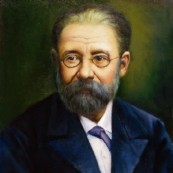






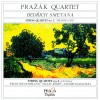

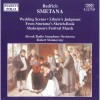





![Russian legends - David Oistrakh [20 CD]](http://static.classicalm.com/repository/collection-cover/small/267-img1318418713553266.jpg)
![Top 100 der Klassik [CD 2 of 5]](http://static.classicalm.com/repository/collection-cover/small/1365-img1372592354874210.jpg)
![Top 100 der Klassik [CD 5 of 5]](http://static.classicalm.com/repository/collection-cover/small/1368-img1372595835213275.jpg)
![Deutsche Grammophon Classic Gold [CD 1 of 3]](http://static.classicalm.com/repository/collection-cover/small/1314-img1361380277394437.jpg)

![The Top 100 Masterpieces of Classical Music 1685-1928 [CD7of10]](http://static.classicalm.com/repository/collection-cover/small/1359-img1372446248695097.jpg)
![The Top 100 Masterpieces of Classical Music 1685-1928 [CD8of10]](http://static.classicalm.com/repository/collection-cover/small/1360-img1372447516287674.jpg)
![Great European Organs. 67-Michal Novenko [Povyseni sv.Krize, Litomysl]](http://static.classicalm.com/repository/collection-cover/small/973-img1342720942767973.jpg)


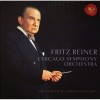
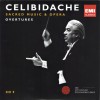

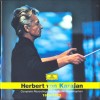

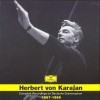
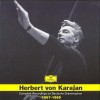
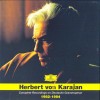
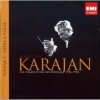

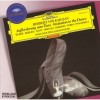
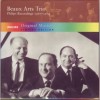


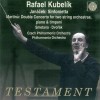



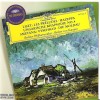
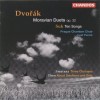
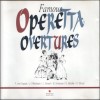
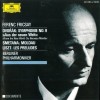
![Herbert von Karajan - Sternstunden der Musik [CD1of3]](http://static.classicalm.com/repository/disk-cover/small/3677-img1406715347234224.jpg)
![Herbert von Karajan - Sternstunden der Musik [CD3of3]](http://static.classicalm.com/repository/disk-cover/small/3679-img1406716183842579.jpg)
